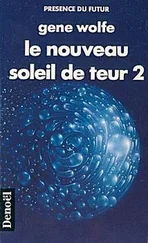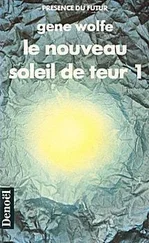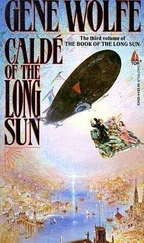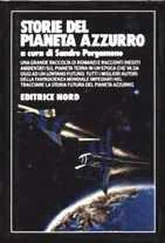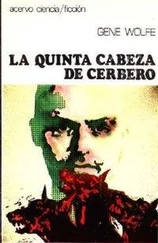Gene Wolfe - There Are Doors
Здесь есть возможность читать онлайн «Gene Wolfe - There Are Doors» весь текст электронной книги совершенно бесплатно (целиком полную версию без сокращений). В некоторых случаях можно слушать аудио, скачать через торрент в формате fb2 и присутствует краткое содержание. Жанр: Фантастика и фэнтези, на английском языке. Описание произведения, (предисловие) а так же отзывы посетителей доступны на портале библиотеки ЛибКат.
- Название:There Are Doors
- Автор:
- Жанр:
- Год:неизвестен
- ISBN:нет данных
- Рейтинг книги:4 / 5. Голосов: 1
-
Избранное:Добавить в избранное
- Отзывы:
-
Ваша оценка:
- 80
- 1
- 2
- 3
- 4
- 5
There Are Doors: краткое содержание, описание и аннотация
Предлагаем к чтению аннотацию, описание, краткое содержание или предисловие (зависит от того, что написал сам автор книги «There Are Doors»). Если вы не нашли необходимую информацию о книге — напишите в комментариях, мы постараемся отыскать её.
There Are Doors — читать онлайн бесплатно полную книгу (весь текст) целиком
Ниже представлен текст книги, разбитый по страницам. Система сохранения места последней прочитанной страницы, позволяет с удобством читать онлайн бесплатно книгу «There Are Doors», без необходимости каждый раз заново искать на чём Вы остановились. Поставьте закладку, и сможете в любой момент перейти на страницу, на которой закончили чтение.
Интервал:
Закладка:
Just like him. He might be dead now at home, dead and rotting as he sat before the television in the chair he had bought so cheaply; but he was alive here, his crimson blood proved it, even if this was the last reel.
The drive mounted a hill and bent to the right. He heard a truck roar past—not only heard it, but saw it, saw at least its orange-and-green top above the crests of the snowbanks. Another hundred steps or so brought him to the point at which the drive left a two-lane road, also of black asphalt, that might or might not have been one he had driven along with North. He tried to guess in which direction the ocean lay, and guessed wrong; but after a walk of half a mile reached a point from which he could see both the hotel and his mistake.
He was about to retrace his steps when an old red pickup with chains came rattling down the road, driven by a middle-aged farmer. He flagged it down and explained how he had been locked out as briefly as he could.
The farmer chuckled and opened the door. “Guess you won’t be goin’ out that way no more.”
He grinned. “Hell, no!” He felt he ought to be angry, but he was completely incapable of it. The old pickup had a heater that worked, and its hot breath on his feet was the promise of heaven.
“Don’t many people stay in the winter,” the farmer said. “My Junie works there sometimes, but come fall they lay her off. Didn’t even know it was open.”
He nodded and said, “It’s pretty empty. I hope you’re not going out of your way for me.”
“Goin’ right by anyhow. I’m goin’ into town. Hotel ain’t far, ’bout two, three miles from my place.”
The road ended with a stop-sign at a somewhat wider road; and after they had turned onto that, he heard the waves. Soon he saw them as well, cold and green—and yet alive, the scales of a watery snake coiled around the world, he thought, and not so much malevolent as inhuman.
“Here ’tis.” The pickup jolted to a stop. “Name’s Grudy, by the way.”
“Green,” he said, and they shook hands. “If I could pay you something for this, Mr. Grudy … ?”
The farmer snorted. “Don’t you even suggest it, Mr. Green. I’d do it any time—so’d you for me, I’m sure.”
He thanked the farmer again and climbed out, shutting the truck’s door carefully and waving while the farmer drove away. As he crossed the terrace toward the brightly lit glass wall of the hotel, he looked at his watch. It was eleven thirty-four; the coffee shop would be serving lunch, now or soon. He would find some way to speak to Fanny, who, even if she were a double agent, might lead him to those who were not. Fanny could learn no more by seeing him again than she already knew; but he might learn a lot, including how to think and act like a conspirator, which seemed to be the thing he needed most to know.
There was no bellboy at the entrance this morning. A sign that stretched across both glass doors announced: CLOSED FOR THE SEASON. A single bespectacled clerk fussed with papers at the desk. He pounded on the doors, but the clerk soon vanished into the office behind the desk, never to reappear; and after a time the lights in the lobby winked out.
The Cop
Studying the hotel from the terrace, he could not see a single light. For a moment, he considered breaking in—there were a hundred windows available to him, or so it seemed. In the end he rejected the idea; if there were no one inside, it would do him little good, and if some of the staff were still there (if the clerk were merely waiting in the office for him to leave, for example, as he suspected) he would be arrested and put in jail—a jail where Lara could not possibly be.
He returned to the road instead, confident now that a well-dressed man would soon get a ride, that even a well-dressed man with scorched cheeks and a bloody finger would not have to wait for long. The statue of ice that had watched him eat his waffle watched him again; it wore an expression of sullen satisfaction, possibly because of the slight change in angle. The ocean spoke to him as an angry mother berates her child; but though he could hear the anger and rebuke in its voice, he could not understand what it was it wished him to do, what the waves thought he ought to have done.
It was half an hour before the first car passed, and it did not stop. After a second wait that seemed equally long, a large red bus lumbered by, its driver ostentatiously oblivious to the frantic figure not at an approved stop. On the television news, he had often heard about drivers who would not pick up even the dying, but it had not occurred to him before that many of these must have been company drivers forbidden by their companies to provide aid, or that this must have been concealed through some private arrangement between the companies and the news media.
He counted the waves as they spoke on the ice-locked beach; and when he had come to a hundred and seventeen, the convertible passed, driven by the bespectacled clerk. He stepped into the middle of the road to make it stop; but save for swerving around him, the clerk ignored him still.
Deciding it was useless, he turned away and trudged after the convertible, which soon vanished around a snow-blind curve. The bus had passed, and so it seemed likely to him that there was a bus stop somewhere along the road, a bus stop from which country people who did not have cars or trucks could reach the city—a bus stop, and perhaps even a bench. His legs trembled from all the walking and standing he had done that morning; his head, which had ached off and on ever since he had awakened in United, throbbed now with pain.
A car behind him pinged and chittered like a broken music box. He did not turn to look, sure that no matter what he did it would not stop and unwilling to step from the cleared strip to its snow-packed edges.
“You need a ride?” It was Fanny, calling through the open window of one of the subcompacts he had looked at in the parking lot.
He tried to smile. “Hey, do I!” She might be Klamm’s spy; but if Klamm and the police were against North, was that so bad? Like the doors of the car he had driven for North, this one had doors hinged toward the rear. He twisted the handle, opened the door, and got in.
“Didn’t you have luggage or anything?” She sounded sincere and slightly stupid.
“Not much,” he told her.
Her left foot depressed the long clutch pedal as she pulled the shift rod smoothly back. “I see. Well, I wish you’d stayed on. Anyway they would’ve called a cab or something for you when you checked out, you know.”
“I didn’t check out.”
The clutch pedal came smoothly up; the engine hesitated as if ready to die, then caught hold. The little car shook itself and lurched ahead. “They said you did.”
“They locked me out.”
“You didn’t pay?”
“We were paid for several days yet,” he said.
“They wouldn’t do that.”
He shrugged, looking out at the snowy countryside.
The little car staggered into second. “Anyway, there went my winter job. This fall they begged me—I mean begged me—to stay on. Fanny, we’re going to try staying open all winter—that’s exactly what they said. Now I’m out of a job, and all the winter jobs are gone.”
“Maybe that woman at the beauty shop could find something for you.” He turned to look at her. “I was going to say, the one who did your hair, but your hair hasn’t been touched.”
“You noticed.” When she had shifted into third, she patted her hair. “Naw, she wanted to shampoo and set it, but it don’t really need it. I don’t really need a perm either—I knew she’d tell me that. I just wanted somebody to talk to. Where are you going anyway?”
“The railway station.”
Читать дальшеИнтервал:
Закладка:
Похожие книги на «There Are Doors»
Представляем Вашему вниманию похожие книги на «There Are Doors» списком для выбора. Мы отобрали схожую по названию и смыслу литературу в надежде предоставить читателям больше вариантов отыскать новые, интересные, ещё непрочитанные произведения.
Обсуждение, отзывы о книге «There Are Doors» и просто собственные мнения читателей. Оставьте ваши комментарии, напишите, что Вы думаете о произведении, его смысле или главных героях. Укажите что конкретно понравилось, а что нет, и почему Вы так считаете.

